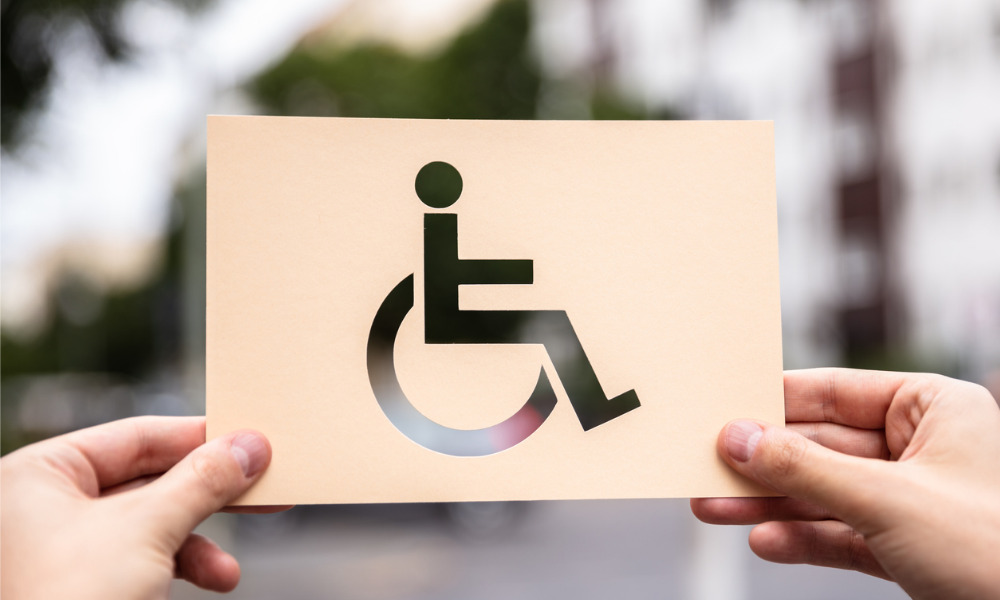
Despite being 'continuously overlooked', these employees are part of the solution

People with disabilities may continue to be disregarded by employers, despite a skills shortage currently crippling the country. While the recent Jobs and Skills Summit performed a crucial job of addressing the difficulties confronting Australian companies, Daniel Valiente-Riedl, general manager of the government’s disability employment hub “JobAccess,” noted that individuals with disabilities continue to be “ignored” when it comes to hiring.
“For employers, improving disability confidence is imperative. Not only does it provide appropriate opportunities for people living with disability, employers have access to a larger pool of skilled candidates,” he said. “The summit brought to the fore challenges facing Australian employers, and the need for action to build a strong economy. But more than ever, the labour shortage has made it essential for businesses to be smart and innovative when recruiting new talent while up-skilling and retaining current employees.”
As the country experiences a high demand for labour in major areas such as hospitality, sales, transportation, and construction, advocates have called on business to tap into the disability workforce. According to the Australian Bureau of Statistics (ABS), one-third of the country’s businesses have struggled to recruit suitable employees this year. However, 54% were workers with disabilities compared to 84% without disabilities.
An employer’s responsibility: ensure conversations are appropriate
Employers have been described as “often eager” and curious to know what questions they may ask regarding a person’s disability.
JobAccess explained that an employer could only inquire about how an employee’s condition affects their ability to do the assigned tasks and how the workplace can be modified to assist them in their duties.
When it comes to personal questions about an employee’s lifestyle, JobAccess said this is not allowed. “Just ask the same questions that you would of a person without disability,” it said.
In a media release, it provided employers with questions that they are allowed to ask and those that they cannot.
Types of questions an employer can ask:
“Do you need any special work arrangements so you can do your job?”
“Do you need any changes to be made here in the workplace?”
“Have you got ideas about good ways to do your job?”
“Do you have ideas for making your workplace safe?”
“Do you take any medication that might make it unsafe for you to do any of the job’s tasks?”
“How will you let us know about medical appointments so we can change your work roster?”
Types of questions an employer cannot ask:
“Do you take a lot of medication?”
“Are you sick a lot?”
“How many times a year do you go to the doctor?”
“Are you going to be able to cope?”
“Does your disability make you get angry with other people?”
“Have you ever lost a job because of your disability?”
An employer’s obligation: work and safety
When it comes to positive duties concerning work health and safety, JobAccess said that employees with disability have the same rights and responsibilities as employees without disability.
“As an employer, your organisation must provide a safe and healthy workplace to protect all employees against potential injury or harm,” it said.
Employees with disabilities may need some workplace alterations to guarantee their safety, such as changes to work procedures or equipment or adjusting work schedules. These modifications might include putting visible markings on steps or paths, constructing a ramp to facilitate access to a building, or providing a parking place adjacent to the premises for a wheelchair-using employee.
With all the necessary accommodations that an employer should implement when hiring disabled workers, Australian of the Year and tennis champion Dylan Alcott emphasised the benefits of hiring workers living with disability.
“It’s just bloody good business because people with disability are 90 percent more likely to be equal to or more productive than able-bodied people, we have higher retention rates, (and) lower absenteeism,” he said in the media release.